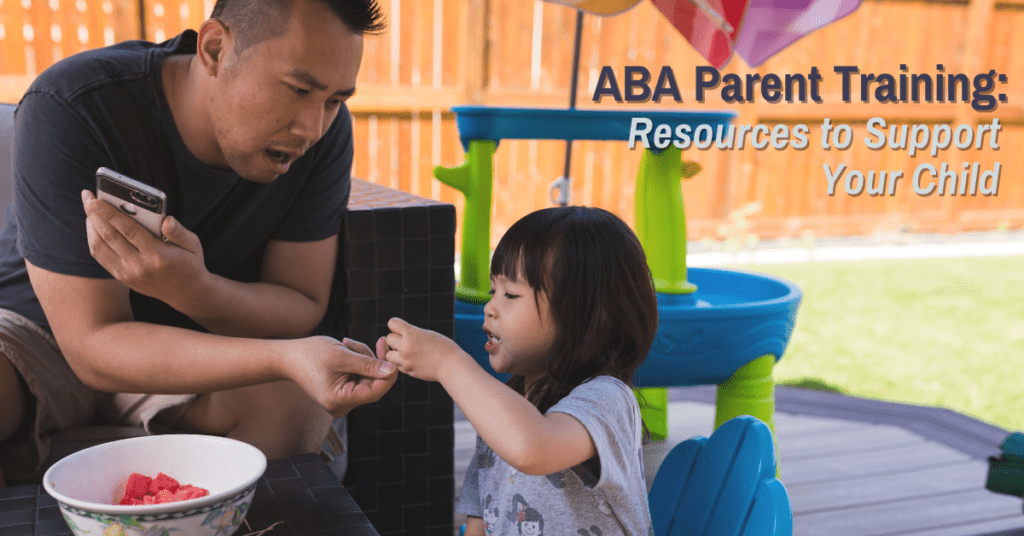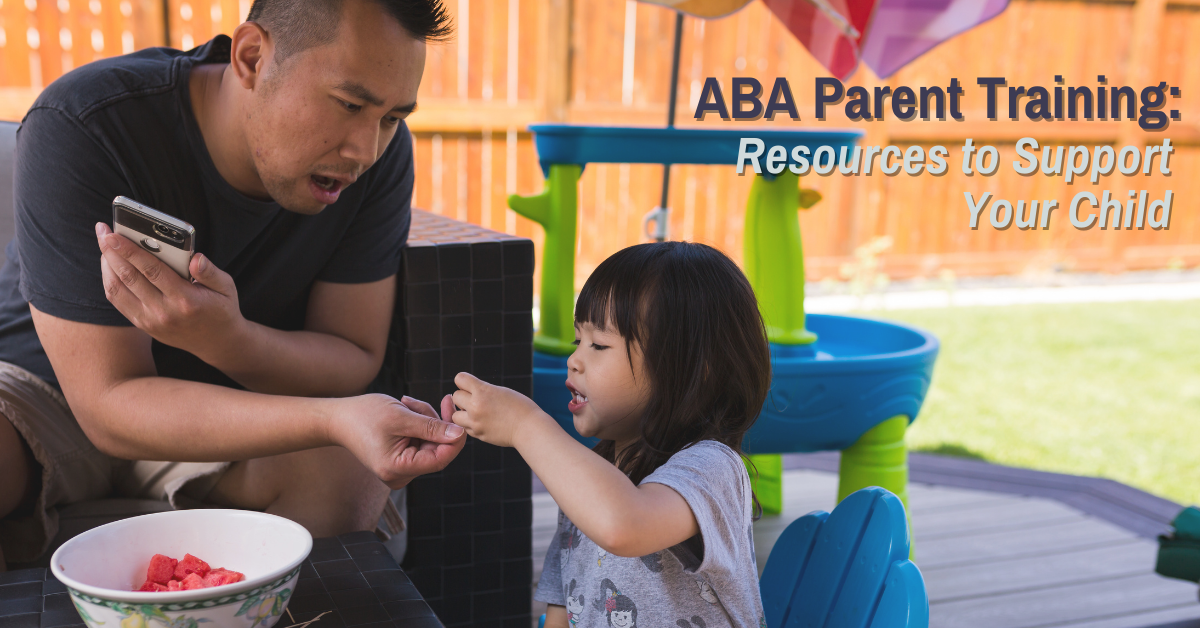
The pandemic disrupted life as we knew it. Most everyone experienced significant difficulties in adjusting to a more secluded way of life as schools and businesses closed for safety. This uncertain time brought a great deal of stress to parents of children with autism who struggled to support their children at home. As we also had to temporarily close our doors last spring, many of our client’s parents sought assistance from us. In response, we quickly pivoted to a telehealth ABA Parent Training format. This involved their child’s BCBA virtually supporting them with practical ABA Parent Training resources. Our BCBA’s helped parents navigate new challenges they faced amidst pandemic restrictions.
Our Director of Clinical Standards, Dr. Jennifer Badalamenti, Ph.D., BCBA-D, LBA, created 20 ABA Parent Training modules for BCBA’s to utilize with parents remotely. Based on a loving, holistic approach, these modules provide ways to help children maintain skills at home, address problem behavior, as well as teach stress-reduction methods for parents.
Here are a few practical take-aways from our ABA Parent Training Resources:
The Importance of Play
Through play, kids and parents connect with each other and form a positive relationship. Our clinic utilizes a method called DRIP, which stands for:
- Describe: Point out what the child is doing (Ex: “You’re really squishing that Play Doh. Now you’re rolling it and creating a shape!”)
- Reinforce: Provide a means of reward for positive behaviors, such as edibles, videos, games, physical affection, etc.
- Imitate: Demonstrate what the child is doing alongside them.
- Praise: Give positive, enthusiastic messages to the child for engaging in play and social interaction (Ex: “Fantastic job saying hi!” “Wow, I love how you are building that tower.”)
DRIP promotes engagement with the child. DRIP allows the child to take the lead while the adult plays along with them. Through this continuous interaction, kids see adults as fun role models rather than individuals who just give demands. In turn, when demands are placed, the child is more likely to respond positively.
Addressing Problem Behavior
One of the most difficult areas for parents to navigate at home is problem behavior. Parents often feel frustrated and drained trying to understand why their children engage in aggression or run away from them.
But a key piece in reducing these behaviors is teaching the child to negotiate and communicate their needs. This process begins with collecting and analyzing data to identify what is causing the behavior. The process ends with implementing a behavior plan tailored to the child. With the BCBA’s support, parents can help their child learn to communicate what they need. For example, if a child tends to run away when demands are placed, teaching the child to ask for a break replaces the negative behavior.
A Variety of Support Strategies
ABA Parent Training can begin with the foundational concepts of applied behavior analysis. For a child newly diagnosed, BCBA’s can help parents identify what is typical child behavior, or what is related to their autism diagnosis. Additionally, sessions can address a variety of areas depending on the child’s needs, such as:
- Working on a task independently
- Scheduling daily activities so children have a routine and know what to expect
- Encouraging sibling interactions
- Overcoming picky eating/food sensitivities
- Limiting screen time
- Building resilience and emotional intelligence
Stress Management and Well-Being
While parents of children with autism often face isolation, depression and anxiety, the pandemic has only made these worse. In additional to the principles and strategies of ABA Therapy, Dr. Badalamenti’s modules highlight the importance of social support and offer strategies to cope with stress.
In ABA therapy, kids learn coping skills rooted in relaxation and mindfulness. They help our clients learn to manage their emotions. These strategies are also a part of our parent training resources. Parents can come alongside their children by practicing these exercises, while also benefiting from them personally. Going for a walk, meditation, or relaxing in nature are just a few examples of how parents can learn to manage their stress.
Foundational Support
Our ABA Parent Training resources have always been a part of our ABA services. We believe it is vital to provide parents with this support to help their child’s development. Even though our in-person ABA therapy for children resumed last summer, our ABA Parent Training program remains a key component of our ABA services.
If you are in need of practical strategies to support your child, reach out to us for more information on our ABA Therapy and ABA Parent Training resources.



